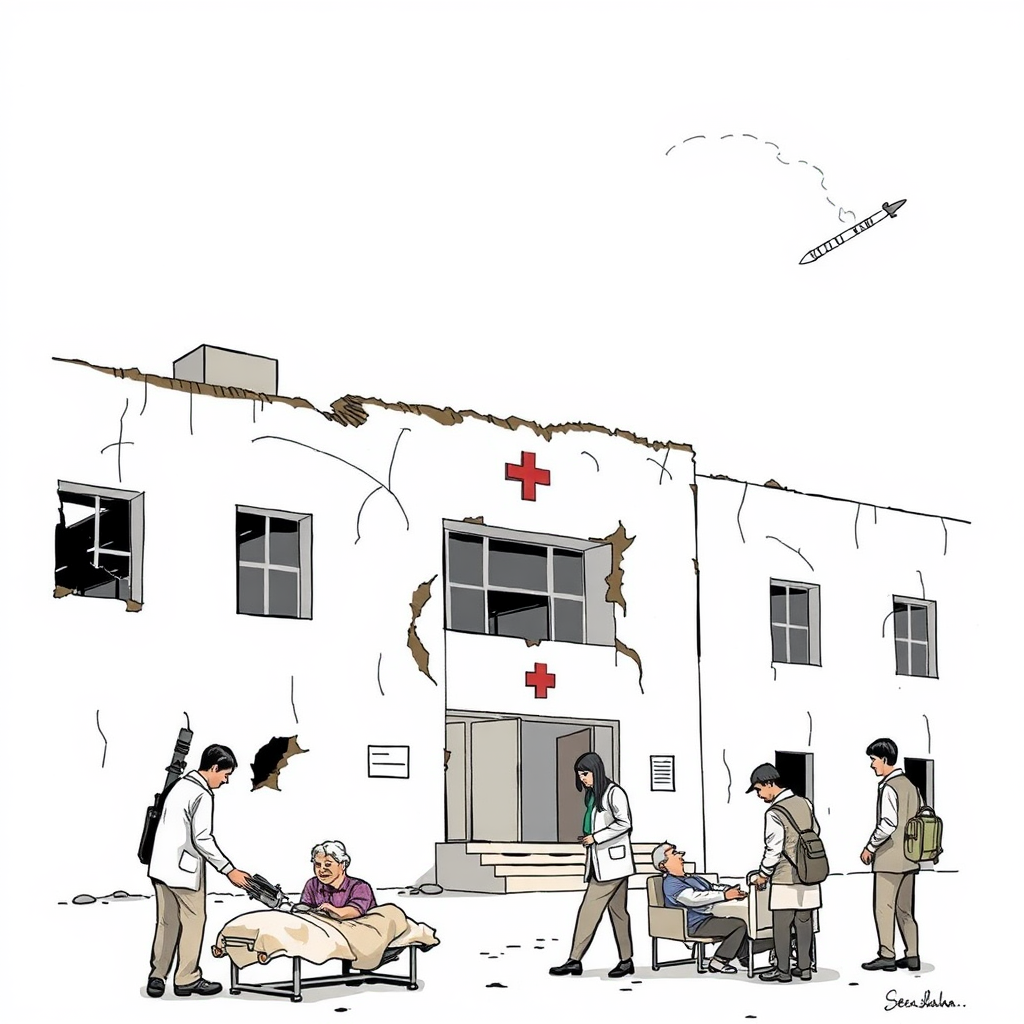Iran Strikes Hospital, Israel Vows Retaliation

A hospital in southern Israel sustained damage during an Iranian missile strike Saturday, injuring dozens as the escalating conflict between the two nations continues. Seventy-one people suffered minor injuries at Soroka Medical Center in Beersheba, according to the Israeli health ministry, which reported a total of 271 injuries across the country, including four individuals in serious condition. The barrage also impacted neighborhoods in Tel Aviv, Holon, and Ramat Gan.
Iran’s state media claims the strike targeted a military command and intelligence center located near the hospital, with collateral damage affecting the medical facility. Israel has responded with its own missile attacks, targeting a nuclear reactor in Arak, facilities in Natanz, and ballistic missile sites.
The exchange of attacks has resulted in significant casualties. The Human Rights Activists News Agency (HRANA) reports 639 deaths and 1,329 injuries in Iran, with 263 of the deceased identified as civilians and 154 as military personnel. In Israel, 24 have been killed and 838 injured.
Israeli officials have vowed a strong response. Defense Minister Israel Katz, speaking at the site of missile strikes in Holon, stated that Iran’s Supreme Leader, Ayatollah Ali Khamenei, “can no longer be allowed to exist,” accusing him of ordering attacks on hospitals and seeking Israel’s destruction. Prime Minister Benjamin Netanyahu echoed this sentiment, promising to exact “the full price” from Tehran. Security Minister Itamar Ben-Gvir called for the “annihilation” of the ayatollahs’ regime.
The rhetoric from both sides is deeply concerning. While understandable that Israel feels threatened by direct attacks on its infrastructure, the language used by some officials – particularly the calls for the elimination of a national leader and the “annihilation” of a regime – risks further escalating the conflict and hindering any potential for de-escalation. Such statements, while perhaps intended to project strength, could be interpreted as aggressive intent and fuel a cycle of retaliation.
The situation is further complicated by the potential for wider international involvement. Netanyahu, during a visit to Soroka Medical Center, expressed trust in former U.S. President Donald Trump’s judgment, noting that Trump is considering direct military action against Iran. Khamenei, in turn, warned the U.S. against intervention, threatening “irreparable damage.” Russia has also cautioned against U.S. involvement, fearing an expansion of the conflict.
The international community must prioritize diplomatic efforts to de-escalate the situation and prevent a wider regional war. While Israel has legitimate security concerns, a measured response and a commitment to dialogue are crucial. The escalating rhetoric and potential for external intervention create a dangerous environment, and a peaceful resolution requires restraint from all parties involved. The focus should be on addressing the underlying issues driving the conflict, rather than resorting to military action that will only exacerbate the suffering of civilians on both sides.